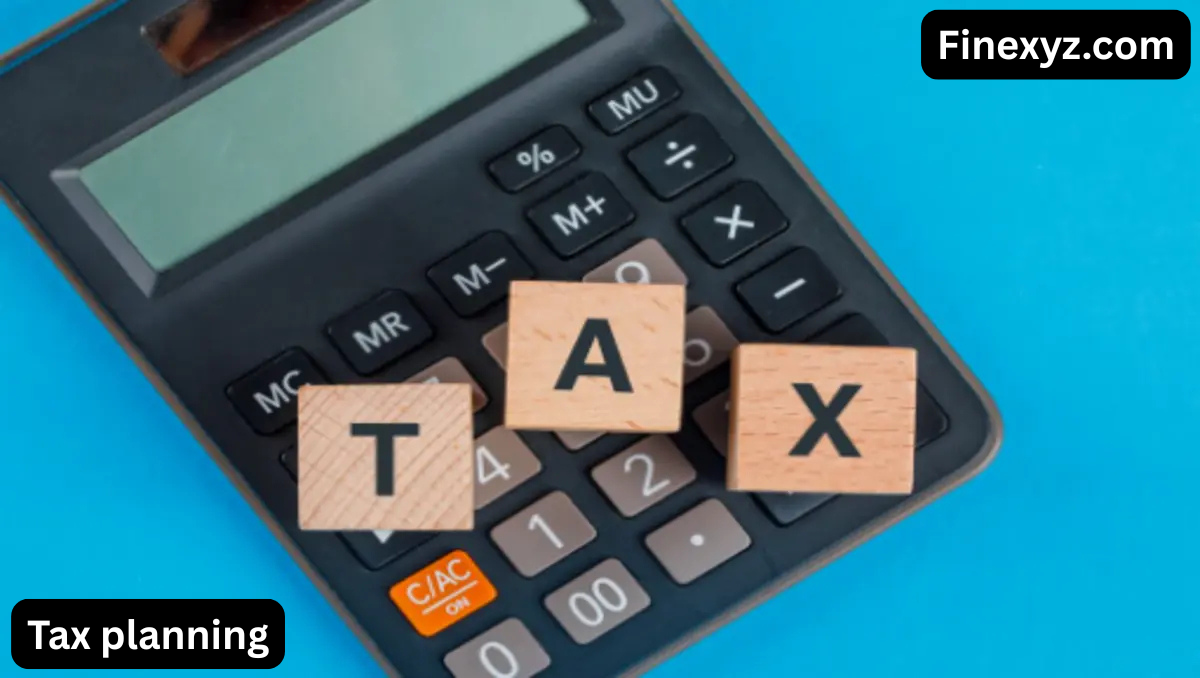Welcome to our straightforward approach on tax planning. Taxes might be complex, but with the appropriate measures, you can save money and reduce stress. This article will explain tax planning in simple terms so you may improve your money management and prepare for tax season with confidence.
What is Tax Planning?
At its core, tax planning is the process of structuring your financial affairs in order to reduce your tax liability. This entails taking actions to decrease the amount you owe in taxes while remaining within the law. Good tax planning entails utilizing available tax deductions, credits, and other tactics to avoid paying more than necessary.
Why Is Tax Planning Important?
Tax preparation is not limited to enterprises or the rich. It is something that everyone should think about in order to maximize their earnings. Here are a few reasons why it is vital.
1. Save money. Understanding the tax system allows you to take advantage of possibilities to decrease your taxable income, perhaps resulting in large savings.
2. Avoid Penalties: If you do not plan ahead, you may find yourself owing more than you can afford, resulting in interest costs and penalties.
3. Make Informed Decisions: Effective tax preparation enables you to make sound financial decisions throughout the year, such as selecting tax-efficient investments or modifying your spending habits.

Key Strategies for Tax Planning:
1. Know Your Tax Bracket:
Your tax bracket, or the percentage of your income that is taxed, is determined by your income level. Understanding your tax bracket enables you to make decisions that will lower your taxable income. Contributing to retirement accounts such as 401(k)s or IRAs, for example, can reduce your taxable income and perhaps shift you into a lower tax bracket.
- Maximize Deductions: Deductions are expenses you can deduct from your total income to reduce your taxable income. Some frequent deductions are:
- Mortgage interest: If you own a home, the interest on your mortgage may be deductible.
- Medical expenditures: If your medical expenses surpass a specific proportion of your income, you may be eligible to deduct them.
2. Take advantage of tax credits,
which might be more helpful than deductions in lowering your taxable income. Common tax credits include the following:
- Earned Income Tax Credit (EITC): This credit is intended to benefit low-income workers and families.
- Child Tax Credit: If you have dependent children, you may qualify for this credit.
- Education credits are provided for tuition and other educational expenses.
3. Consider Tax-Deferred Accounts:
These accounts, including 401(k)s and IRAs, allow you to invest without paying taxes until you withdraw the cash in retirement. This can be an effective approach to reduce your current taxed income while also investing for the future. It’s critical to understand the restrictions governing these accounts, such as contribution limits and withdrawal penalties.
4. Consider Tax-Advantaged assets:
Many assets, such as municipal bonds, are exempt from federal taxes. If you want to invest while minimizing your tax burden, tax-exempt assets can be a good choice. Furthermore, long-term capital gains from investments held for longer than a year are frequently taxed at a lower rate than short-term capital gains.
5. Planning for retirement
is not only about saving for the future, but also a tax-effective method. Contributing to retirement accounts decreases your current taxable income, and if you invest intelligently, your profits can grow tax-free until retirement. In addition, tax-advantaged retirement accounts, such as Roth IRAs, allow your money to grow tax-free.
6. Major life events,
such as marriage, having children, or purchasing a property, can significantly effect your taxes. Tax preparation is especially crucial in these circumstances because it might influence your tax bracket, deductions, and credits. For example, being married may allow you to file jointly, which can result in a lower tax rate. Similarly, having children may qualify you for more credits.
Avoid these common mistakes: –
1. Failure to keep good records.
One of the most common mistakes people make is not keeping track of their financial records. Without correct records, you may be unable to claim applicable deductions or credits. Keep all receipts for charitable gifts, medical bills, and other deductible costs.
2. Failing to Plan for Retirement:
Ignoring tax planning can be costly. If you do not contribute to tax-deferred retirement funds, you will miss out on tax savings. The sooner you begin planning, the better your future will seem.
3. Ignoring State and Local Taxes:
While federal taxes are often prioritized, it’s crucial to also consider state and local taxes while preparing. Various states have varied tax laws, and others do not have an income tax at all. Understanding your local tax situation might help you make smarter financial decisions.

Conclusion:
Tax planning does not need to be complicated or daunting. You may lower your taxable income and save money by understanding your tax bracket, taking advantage of all available deductions and credits, and using tax-deferred accounts. It’s all about being proactive and taking efforts throughout the year to keep your taxes manageable. Remember that tax planning is a continuous process. The more you educate yourself, the better prepared you will be for tax season.
Read more
Faq’s
1. What is tax planning?
Tax planning entails strategically structuring your finances so that you pay less tax and save more while adhering to the law.
2. Why is tax planning necessary?
It allows you to save money, avoid penalties, and better manage your income in the future.
3. Can anyone do tax planning?
Yes, tax preparation isn’t just for huge corporations or wealthy individuals. Anyone with an income can benefit from it.
4. What are tax deductions and credits?
Deductions reduce your taxable income, whereas credits immediately reduce the tax you owe. Both allow you to save money.
5. When should I begin tax planning?
The optimal time is at the beginning of the year. Planning ahead of time allows you to take advantage of several savings alternatives.

1 thought on “Tax Planning Made Simple In 2025”